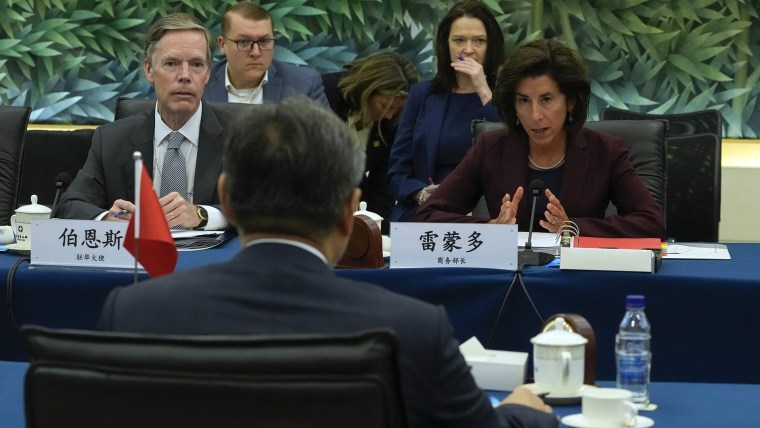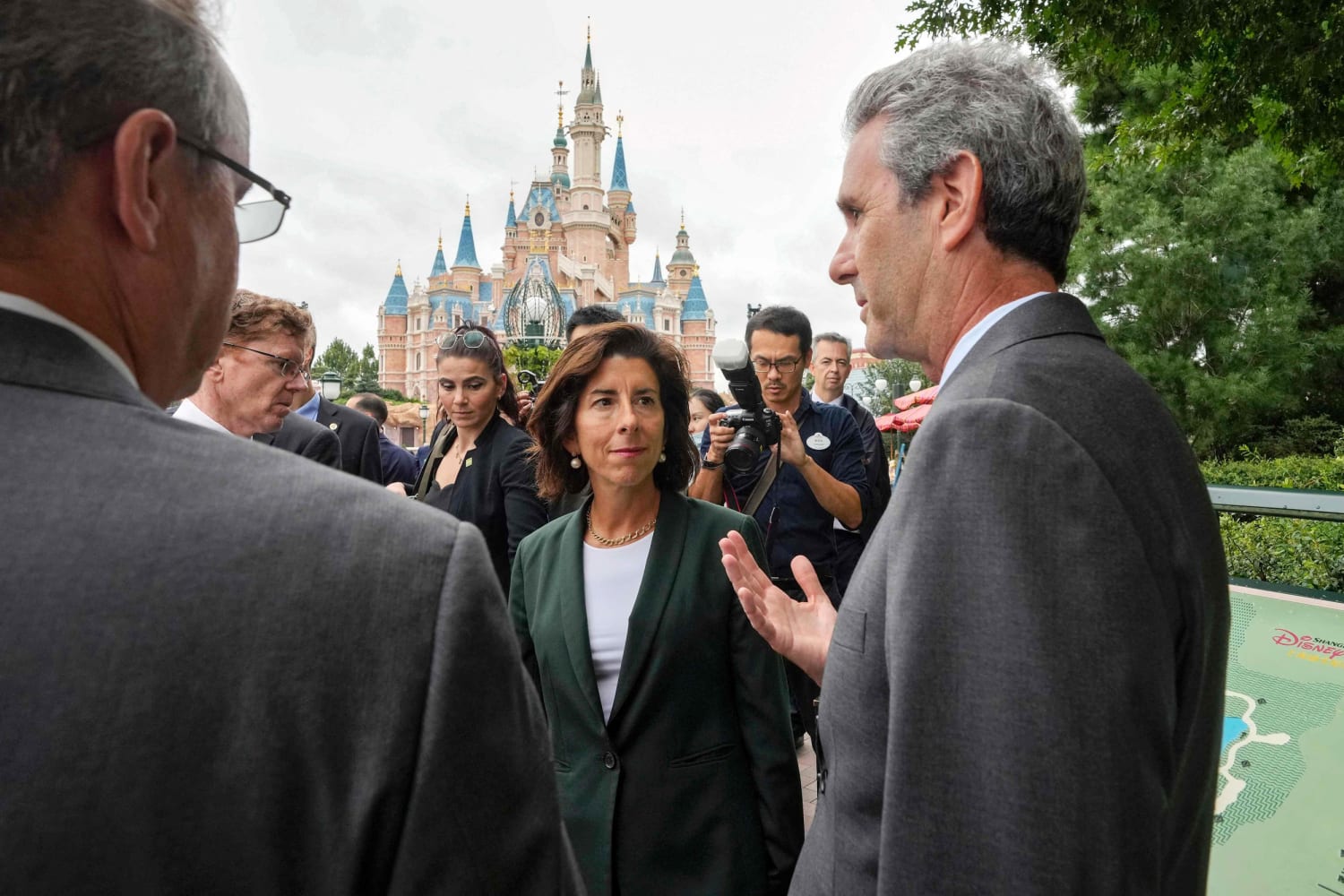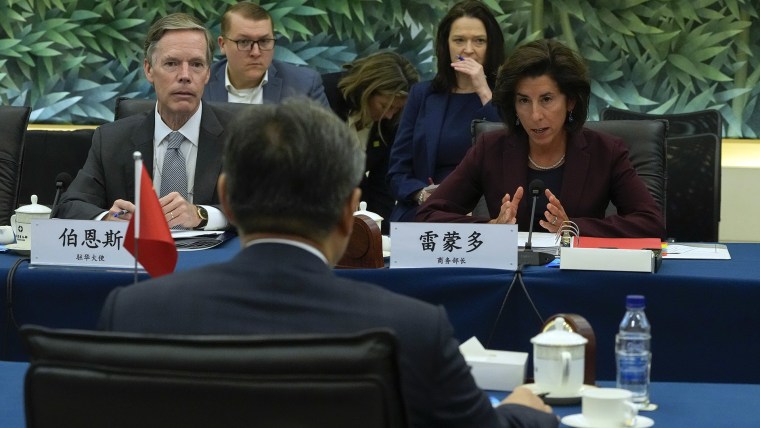During a tour of Disneyland Shanghai on Wednesday, Commerce Secretary Gina Raimondo would have been forgiven for wishing that some of the park’s self-described “storybook magic” had touched her visit.
Raimondo’s China trip this week was the fourth by senior U.S. officials in three months, part of a Washington charm offensive to get relations between the world’s two largest economies back on track. There is a lot of work to do, with friction on everything from human rights to the status of Taiwan, Chinese regional and global ambitions to intellectual property theft and the U.S. fentanyl crisis.
Among the issues Raimondo raised during her visit, the first by a U.S. commerce secretary in five years, was the recent hacking of her unclassified email by China-linked hackers, an action that she said “erodes trust.”
But squint hard through the skepticism, mistrust and barbs, and there may be signs the U.S. and China are taking baby steps toward repairing their strained ties. The main achievement of Raimondo’s trip was to establish new channels of regular communication between the two countries on commercial issues and export controls.
“You can’t solve any problems without first communicating,” she told reporters at a digital news briefing before leaving Shanghai on Wednesday, adding that she hoped the two working groups would help level the playing field for U.S. companies in China.
In meetings with Raimondo this week, Chinese Commerce Secretary Wang Wentao and other officials expressed willingness to find a way forward.
Wang told Raimondo on Monday that he was ready to work with her “to foster a more favorable policy environment for stronger cooperation between our businesses to bolster bilateral trade and investment in a stable and predictable manner.”
Experts say that despite Beijing being deeply wary of Washington, both sides know their trading relationship is not just significant but essential.
In 2022, 7.5% of U.S. exports went to China. Meanwhile, 16.5% of total imports were from China, although that percentage fell by a quarter in the first six months of the year, according to data reported this month by the U.S. Commerce Department, as companies try to diversify their supply chains.
In surveys, U.S. companies say they are committed to the China market long term and that their biggest concern is the poor state of U.S.-China relations.
But they are also hesitant to increase investment, citing an unpredictable regulatory environment and fears that Beijing may take action against them in retaliation for Biden administration policies aimed at limiting China’s advances in sensitive areas.
Those policies, which Raimondo says are non-negotiable, include export controls on semiconductor chips and an executive order restricting U.S. investment in some high-tech industries. They have been strongly criticized by China, which accuses the U.S. of politicizing economic and trade issues and “overstretching” the concept of national security.
“There is mutual dependency and mutual dislike,” said Paola Subacchi, a professor specializing in Chinese economics at Queen Mary, University of London.
Source: | This article originally belongs to Nbcnews.com











